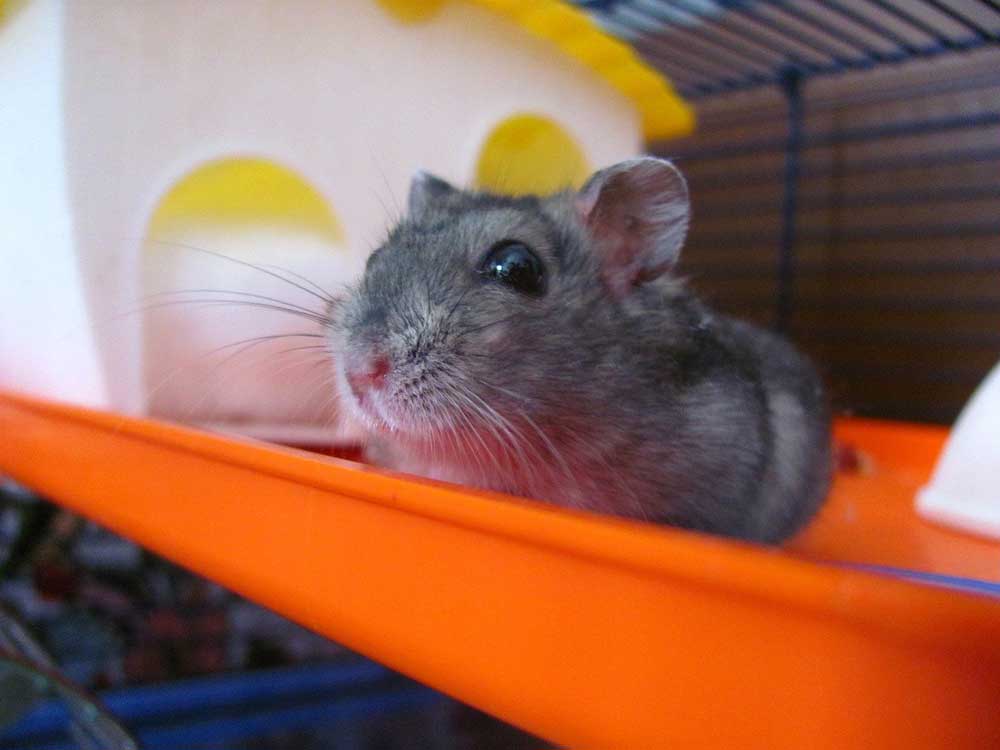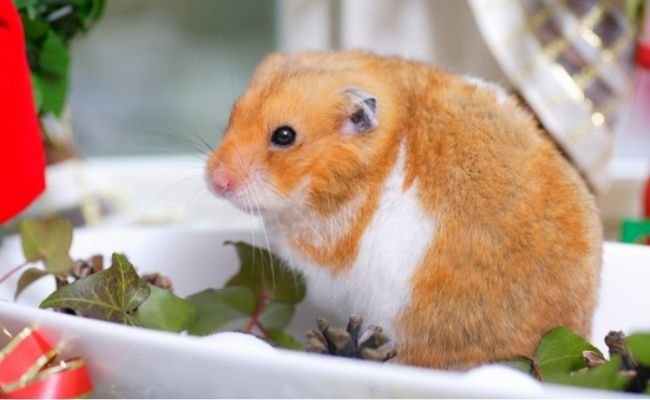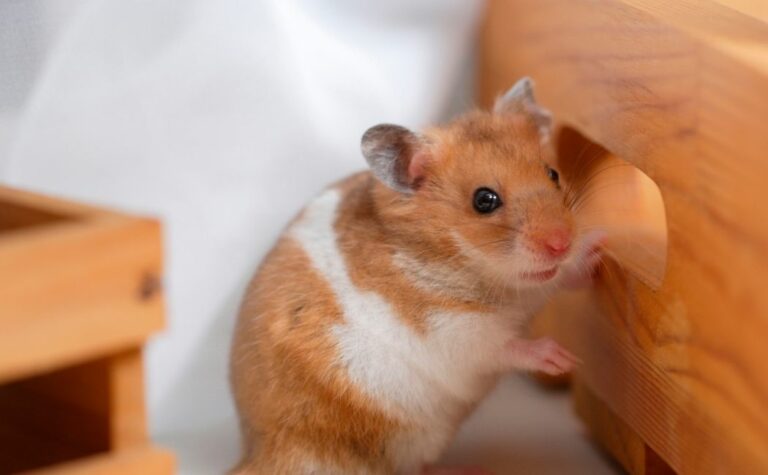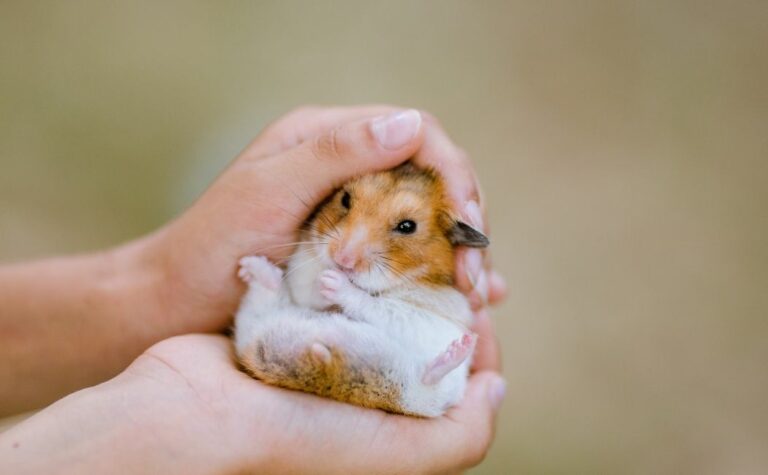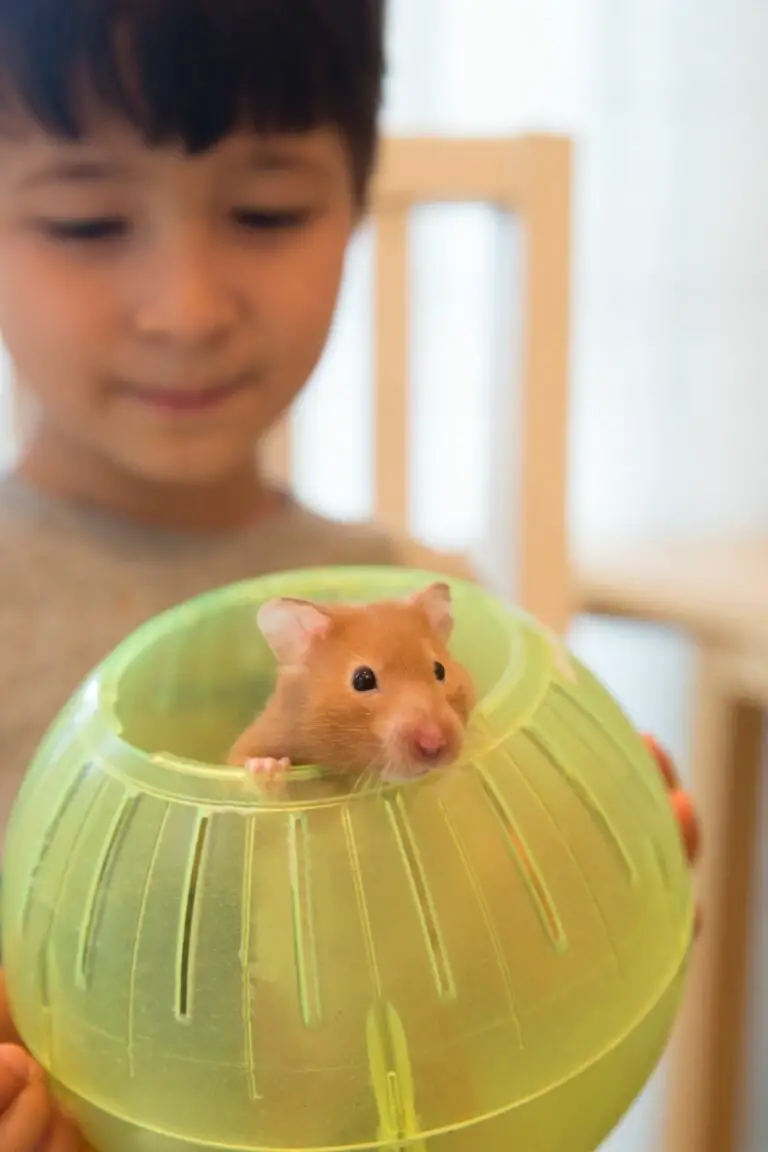Why Do Hamsters Chirp? [11 Common Reasons]
Hamsters are small animals that make great pets. They are generally quiet and you wouldn’t even know that they are there unless they are noisily playing.
However, because they cannot talk to communicate their feelings and wants, hamsters will use body language and various sounds to communicate their needs. From squeaks to squeals to screams, hamsters have different sounds to express different emotions.
This can make you, as a hamster owner, curious to know about these sounds that they make and why they make them. You have come to the right place because we’ll be looking into one of those sounds.
Chirping in hamsters is a common sound. But why do they produce it? Let’s find out.
Why do hamsters chirp?
Hamsters chirp due to a number of reasons. They will chirp as a form of greeting, when they are excited, scared, agitated, seeking your attention, playing, fighting, or communicating with each other. The chirping may be a single sound, a low chirp, or a loud one.
Why your hamster is chirping?
Hamsters will chirp to express many types of emotions. You should pay attention to your pet to know why exactly they are chirping.
They may be chirping because of the following reasons:
Greetings
A hamster may make a single sounding chirp now and then. This can happen especially if you pass nearby or when they see you.
This is usually as a form of greeting to you. Hamsters are said to usually bond with only two people and if they have bonded with you they will likely show you their affection even with a small chirping greeting.
Excited
Your pet hamster is used to you giving them food and treats. When they see you walking over to them with their delicacies, they may begin chirping at you out of excitement.
Getting them out of their cage excites them too. They may sometimes chirp in anticipation of being set free for a while and getting out of the cage.
Scared
New hamsters will get scared more compared to hamsters who are already used to their homes. This is because they are not yet familiar with their new environments.
Hamsters are prey animals which makes them easily scared. The smallest movements or noise can frighten them.
If a hamster is scared, they will chirp to express that fear and make it known.
Agitated
Hamsters are very neat animals who will groom themselves and keep their cages as neat as possible. If their cages are untidy they will get upset which could make them chirp as a complaint.
Different hamsters have different sizes making them require different cage sizes. If your pet is big yet they live in a small cage, they will be stressed and they could begin chirping.
Another reason that can make them agitated is if you are petting them the way they don’t want to be petted or when they don’t want to be petted. They could even bite you when you pet and disturb them when they are asleep.
Communicating
Hamsters are quiet pets to keep. However, this does not mean that they will not communicate with fellow hamsters.
If your hamster has cagemates, you may hear them chirp as they communicate with each other.
Attention seeking
Hamsters need attention just like other pets. They are happy to bond with you and do enjoy it whenever you take time to be with them, which should be on a daily basis.
If you are not spending enough time with them, they will try to draw your attention. They may start chirping so that you go over and check on them.
However, hamsters are nocturnal and their hours may collide with yours. This could make it a challenge to get the right time of bonding with them
They will be more active at night as you sleep while during the day they’ll sleep as you are awake and active. Waking up a sleeping hamster should be avoided as they could bite you.
Playing
Hamsters will have the need to show dominance at times. This will make them chirp at each other if they have cagemates.
Chirping is usually a sound of establishing dominance and they’ll even make it when you bring in a new hamster.
Fighting
Chirping can move from playful to fighting really fast. Hamsters that were playfully chirping while marking territories can begin chirping before a fight happens.
Fighting can be brought about by different reasons like being frustrated with living in a small cage.
Female hamsters are more aggressive than males. Fighting can get serious to the extent of being fatal so if you notice your pets begin to run after each other, separate them.
Hunger
A hamster may chirp when hungry to ask for some food. Giving them food each time should be avoided though and a schedule used in feeding them.
Hamsters hide their food and this can make the food disappear from their plates fast. Giving them more each time they chirp can lead to obesity which brings about health risks.
Cold
A hamster can chirp when cold. The chirp may be accompanied by shivering which will show you just how cold they are.
Their temperatures should be monitored to prevent hibernation. Always keep them above 20°C.
When they want their mothers
When you separate young hamsters from their mothers, they may begin chirping. They are usually weaned at 2-3 weeks and become sexually mature at 4-5 weeks.
This makes it essential for them to be separated. The young ones may chirp for some time until they get used to their mother’s absence.
Conclusion
Hamsters are generally quiet animals but they will make sounds to express their emotions now and then.
They make different sounds and chirping is one of them. A chirp can be a single sound, a loud sound, or a low one depending on what your pet is trying to say.
Chirping will be done as a form of greeting, when they are excited, scared, agitated, seeking your attention, playing, fighting, hungry, cold, communicating with other hamsters, or if they just want their mothers.
- Can Hamsters Travel in a Car? (Read This First)
- Why Do Hamsters Put Food in Their Cheeks? (Explained!)
- Can Hamsters Live Outside? (What You Should Know)
- Can Hamsters Learn Their Name? (Know The Details)
- Can Hamsters Eat Ice Cream? (Read This First)

